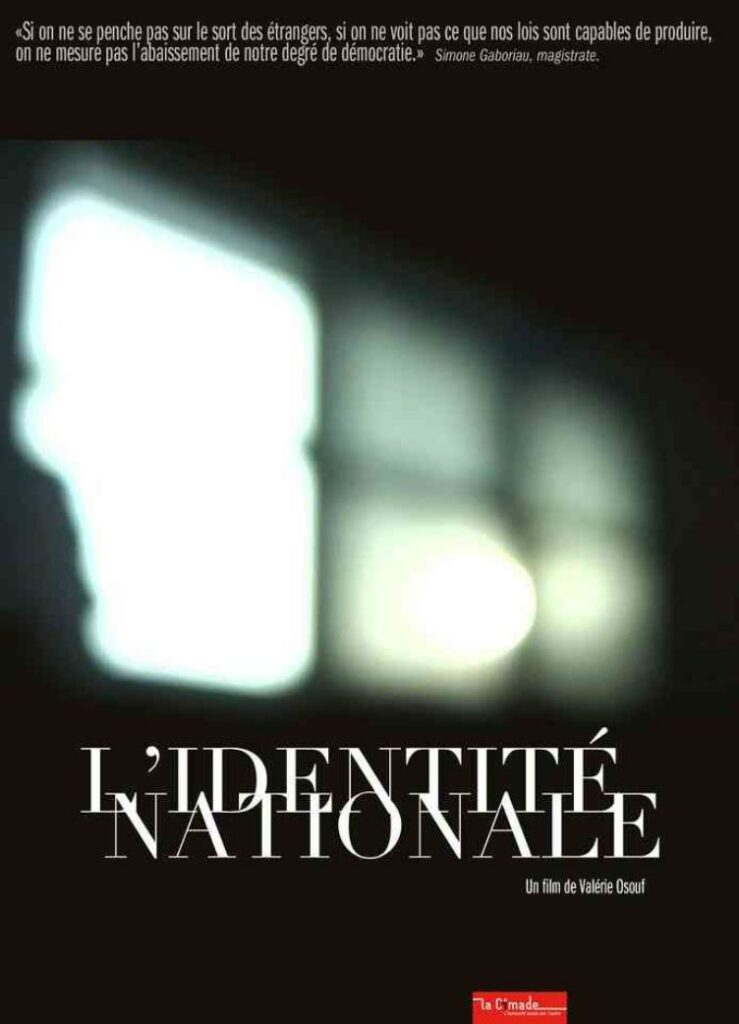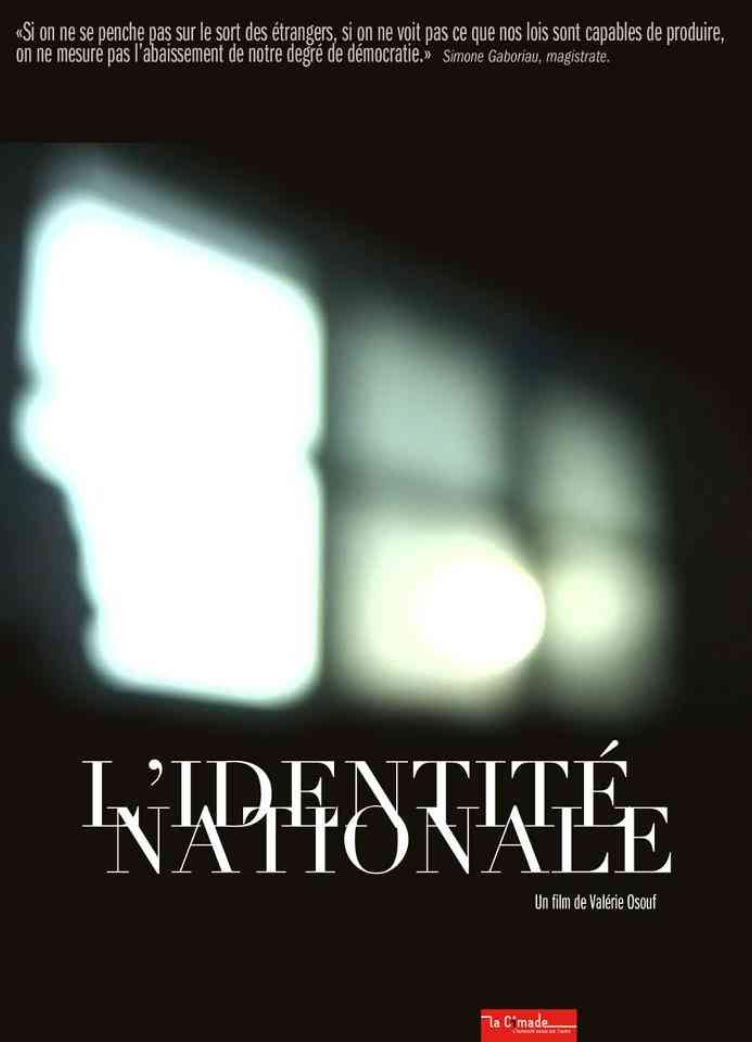National Identity
In development with the support of CNC, Ile de France region, South Region & Pays de Loire Region

A FILM ON INSTITUTIONAL RACISM
If we fail to consider the plight of foreigners, if we fail to perceive what our laws can result in, we begin to lose sight of how low our democracy has fallen.
Ms Simone Gaboriau, Judge.
L’Identite Nationale (National Identity) dramatizes the attempt to resist the discourse on immigration that has gradually corrupted the French body politic over the last 30 years, reaching its zenith under the presidency of Nicolas Sarkozy (2007 – 2012). In this resistance, L’Identite Nationale proposes to listen to a number of ‘speech acts’ (paroles) by those who have experienced first hand the effects of the governing discourse on immigration. These speech acts extend the time not usually granted them in which to shape themselves, articulate responses to others and perhaps challenge the governing discourse.
L’Identite Nationale thus offers a powerful re-affirmation of the ritual of the filmed interview, in its strongest sense.
The film counters the commonly promoted view that the limited attention span of viewers’ can only be served by a series of short ‘soundbites’.
The structuring of L’Identite Nationale invites the respondent to experience the physical presence of words, the emotional weight of speech. Witnessing, through the medium of film, complex thinking processes unfolding within the temporality authored by the film-maker rather than those notorious ‘soundbites’, is in fact a profoundly cinematographic act.
Affirming the speech act in all its many dimensions: physical, emotional, moral, political is indeed a film-maker’s endeavor and, for some, a film-maker’s responsibility.
The voices attended to in L’Identite Nationale are those of people rarely heard in the cinema: ex-prisoners, who have served double sentences, first for a particular criminal offense and secondly in virtue of their status as foreign nationals, trapped as they are by the interface and significant overlap between criminal law and immigration law. (Contrary to Sarkozy’s announcement in 2003, this unjust penal sanction is still in place.)
The speech acts of those who have suffered the effects of the discourse on immigration are juxtaposed with those of elected politicians, Criminal Justice System professionals and researchers. Taken collectively, these speech acts reciprocally complement and confirm each other, cross over and begin to delineate the contours of what the British have come to call a system of ‘institutional racism’. This could just as readily bear the name State Xenophobia – a sentiment that traverses and negatively informs some of the institutional geographies of our Republic: Police, Courts, Prefectures and Prisons – in its treatment of those defined as ‘other’.
L’Identité Nationale begins with a personal narrative often explored in fiction – that of the break in. Here, the – true – story of a break in, is told by a particular narrator, who arrived in France aged 13 and at [the time he committed the crime] [the age of …] [did] [still does] not hold French nationality. From this starting point the film goes on gradually to unfold the paradoxes of the major principles we have inherited from the Enlightenment.
By reflecting on the contradictory relationship that our Nation-State maintains with the Foreigner – both constitutive and excluded – L’Identite Nationale invites us to redefine our status as citizens and to question the shape as well as the foundations of French identity.
Such questioning is likely to affect spectators well beyond French borders, in all nation- states where identity is constituted through exclusion – an exclusion of unlimited duration….
…..1. See Histoires des Vies Brisées, les ‘double peine’ de Lyon, de Bertrand Tavernier (2001)
- Image : Olivier Dassonville
- Additional shooting : Lucas Leconte
- Sound : Martin Lanot
- Editing : Claude Trinquesse
- Sound editing : Romain Le Bras
- Graphic design and special effects : Corinne BlouetProduction : Audrey Kiefer, Valérie Osouf, Eric Idriss Kanago et Jean-François Fernandez pour Granit films
